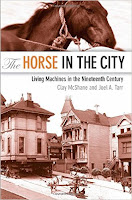Revised and expanded reprint of Little Man: The Gangster Life of Meyer Lanksy
457 pages
© 2019 Robert Lacey
There's no such thing as a lucky gambler. There's only winners and losers, and the winners are the ones who control the game.
Meyer Lanksy is the mob associate of legend, considered with Charles Luciano as the co-creator of the Commission governing the Sicilian mob in America. If Lansky had gone straight, an anonymous FBI agent is supposed to have said, he could have been the chair of General Motors. Judging from Little Man, however, that may not be the case: every time Lanksy tried to go straight, investing in television distribution or hotels, he lost money. Admittedly, it wasn't always his fault; he wasn't the only one to lose millions on Cuba when it went red. Lanksy was, from childhood on, a gambler: he had his introduction as a kid, watching craps games and realizing how it really worked, and the whole of his fortune at his peak was built on casinos and gaming rooms -- whether in Florida, Nevada, or Cuba. But Lanksy wasn't just the brains behind the brawn, the grey eminence in the background. Little Man demonstrates that Lanksy was more than capable of being the brawn himself: he was a teenage union thug who also tried to make a living for himself as a pimp -- but then came Prohibition, and the partnership with Luciano that would get Lanksy running. Robert Lacey's biography is far more thorough than I had expected, though not in the most constructive of ways, and -- presumably, given its sources -- cleans and makes as presentable as possible its subject.
To be sure, Lanksy is an interesting fellow, with a character much different from those of other gangsters or mob associates. When the FBI first began a detailed investigation of him, they found a quiet man who preferred good, but not flashy, suits -- the kind that any respectable insurance broker or bank executive might wear. The same was true for his house, which was comfortable but modest. Lanksy himself was the epitome of self-control and reserve, so much so that his doctor thought such qualities were the cause of his stomach ulcers. Lanksy left school early, but he was a devoted reader and used his adult wealth to retain a tutor. The bulk of his illegal income, after Prohibition, came from gambling -- and in the thirties and forties, law enforcement largely turned a blind eye or was an active participant. In the fifties, however, moral and red panics meant more stringent and targeted laws, active enforcement, and constant investigation into Lansky's deep-gray affairs. Cuba allowed for a partial recovery, at least until Castro destroyed most businesses following his seizure of power -- and it was downhill from there. The last stages of the book see a weary Lanksy taking refuge in Israel, only to be ousted after two years when he applies for citizenship; he's eventually apprehended while trying to make for Paraguay, although in the resulting trial he's acquitted. The state's evidence consisted largely of testimony from a gross loan shark who few on the jury believed. Eventually cancer would do what the state could not.
Lacey's treatment of Lanksy is interesting; though not denying Meyer's association with men who did evil things, sitting in the shadow of evil and cooperating with it to his own gain, he largely depicts Meyer's business as being in the deep grey area, rather than darkly criminal. Beyond his youth, Lacey doesn't depict Lansky as doing anything more than promoting gambling and dodging taxes, which would hardly make him a bad guy in many readers eyes. I'm sure there was more to him than that, but one can't deny Little Man's depth of coverage into Lansky's family life and the trials. The problem, I think, is that Lanksy's accomplishments were so under the table -- no flashy murders or robberies, just subtle manipulation of funds -- that there's no positive evidence of him. Even his family didn't even really know how much he was worth, since he seemed to live near poverty for much of his endgame despite the FBI claiming he was worth $300 million. What I appreciated most about Lacey's work is that he avoided the cutesey nicknames like Lucky and Bugsy in favor of proper ones, like Charlie and Ben.
If someone is interested in Lansky and doesn't object to movies with violence, Mobsters may be of interest. I watched it during my Mafia obsession, bought it later on, and have watched it since. Lansky is depeicted second on the left -- without a Thompson. (In order, the actors are playing Charlie Luciano, Meyer Lansky, Ben Siegel, and Frank Costello.) Of interest is the presence of Michael Gambon, playing one of the two bosses that Luciano disposes of on his rise to power. The weird thing about this movie is that it refers to Marazano as Faranzano. I haven't the foggiest idea as to why.

















